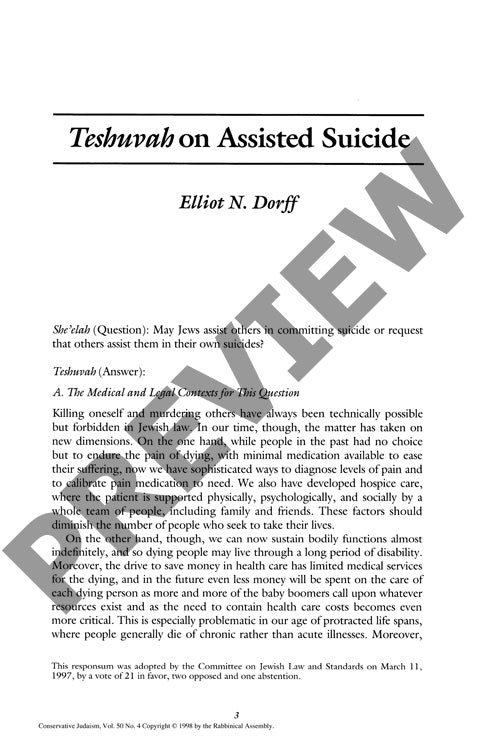Teshuvah on Assisted Suicide
Couldn't load pickup availability
This responsum examines the permissibility of suicide and assisted suicide within Jewish law through a comprehensive analysis of theological, legal, and contemporary considerations. The methodology employs traditional halakhic reasoning, examining biblical and talmudic sources, rabbinic commentaries, and modern responsa literature to establish the Jewish legal position on end-of-life decisions. The study analyzes the theological foundation that bodies belong to God rather than individuals, making suicide a violation of divine ownership except in cases of martyrdom. The research systematically addresses various forms of assisted suicide, from providing means to direct participation, categorizing each according to different levels of halakhic violation including "placing stumbling blocks before the blind," causing indirect harm (grama), and murder. The analysis distinguishes between justified and excused actions, concluding that while suicide may occasionally be excused post-facto, it is never justified except in martyrdom, and assistance is never justified. The study further examines contemporary medical, social, economic, and psychological factors that complicate end-of-life decisions, including inadequate pain management, economic pressures in healthcare, and insufficient social support systems. The responsum advocates for hospice care, adequate pain medication, and robust social support through bikkur holim (visiting the sick) as appropriate responses to end-of-life suffering. The findings affirm the traditional Jewish prohibition against suicide and assisted suicide while endorsing withdrawal of life support and aggressive pain management, even when such treatment may hasten death if the intention remains therapeutic rather than lethal.

More Information
-
Physical Description
-
Publication Information
Published 1998
ISBN
-
Publication Credits
Elliot Dorff

